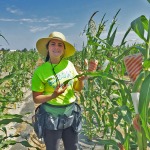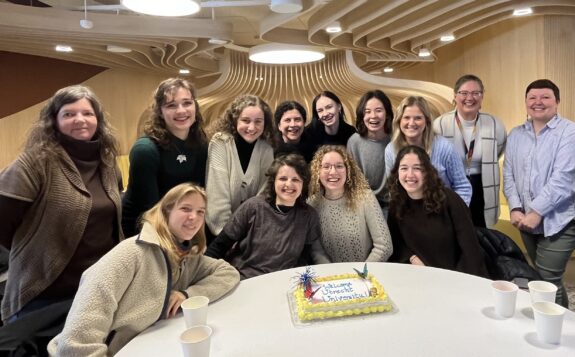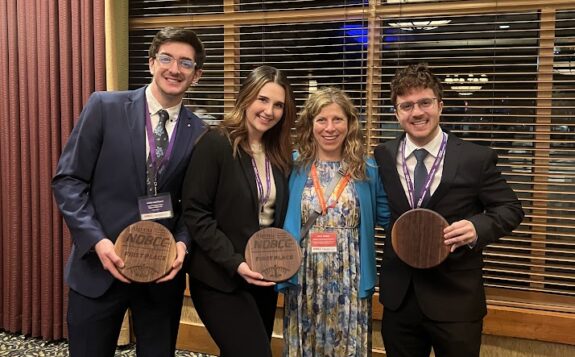(SAULT STE. MARIE, ON – August 12, 2013): Two Algoma University Biology students are working south of the border this summer at the University of California San Diego (UCSD) conducting field and lab work for Dr. Isabel Molina, Associate Professor at Algoma U.
Anastasia Zagordo and Christine Caron will be spending one month in California, fully subsidised by Molina’s National Science Foundation (NSF) Plant Genome Research Project (PGRP) funding, valued at $418,596.30 USD, which was awarded in 2015. The funding allows for unparalleled research opportunities for Algoma U’s Biology students. Zagordo and Caron will assist with plant phenotyping and sample preparation. In addition to developing research skills, they will also benefit from interactions with project participants at other top research universities and attend the BICD101: Eukaryotic Genetics Laboratory course at USCD.
Molina’s project, titled “Genomic Analysis of Leaf Cuticle Development and Functional Diversity in Maize”, is one of the first to investigate cuticle biogenesis in maize, an important staple food of more than 1.2 billion people, which is also largely used as livestock feed and as a raw material for industrial products. The cuticle is a waxy membrane that covers the aerial plant surfaces and is an important adaptation of plants to terrestrial life. This project aims to generate valuable knowledge and tools to improve economically important traits related to leaf cuticle function, including drought tolerance and pathogen resistance in maize and other crops.
For Zagordo, who is entering into her fourth year of study this fall, and hopes to become a dentist, she is grateful for the opportunity to conduct research outside of the University’s laboratories. “This opportunity has truly been unforgettable. It is amazing what opportunities can arise when you are involved in your school community. I have been volunteering in Dr. Molina’s lab since second year in the Biology program, and an experience like this is truly amazing!”
This project has been made possible by a collaboration with the University of California, Cornell University, and Algoma U.
Share Article




